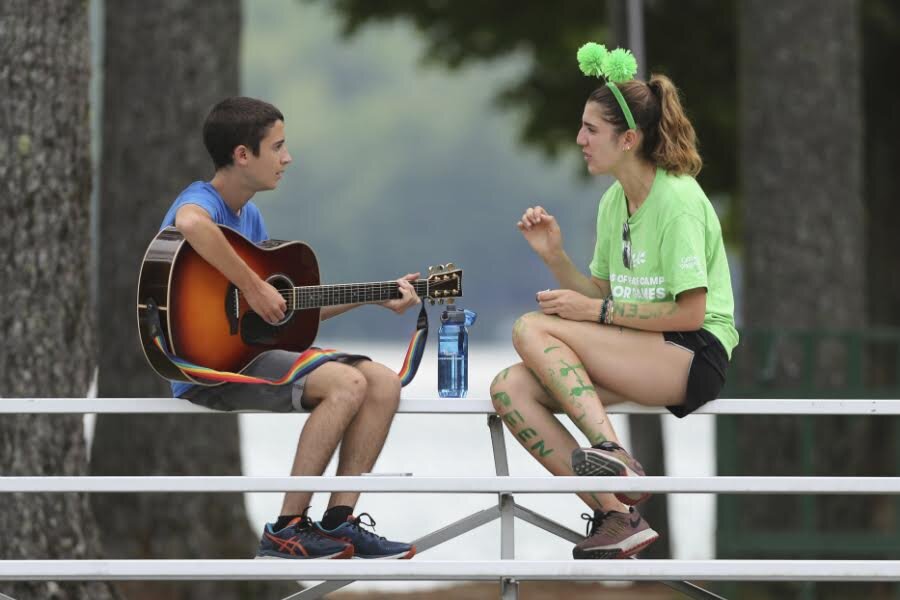Seeds of Peace youth camp celebrates 25 years of optimism
Loading...
| Otisfield, ME
Middle East peace is no closer today than it was a quarter century ago when Seeds of Peace brought the first Israeli and Palestinian teens together in the woods of Maine. But the latest group to spend time together sees reason for optimism.
Husam Zarour, a Palestinian from East Jerusalem, said Israeli and Palestinian youth have inherited an untenable situation but that it's their job to fix it.
"We are born in this place and running way is not a solution. We should not give up. We should face this issue and try to solve it," the 16-year-old said.
The lakeside camp that's celebrating its 25th anniversary was created when the late foreign news correspondent John Wallach brought a group of Israeli and Arab teens in 1993 amid clashes over territory and Palestinians' desire for an independent state. The hope is to find common ground so that one day, there can be lasting peace.
Over the years, more than 6,000 graduates of the program have become politicians, business leaders, teachers, journalists, nonprofit leaders and parents. Many of the Arab-Israeli friendships that took root in Maine have endured despite violence in the homeland.
Yet peace remains as elusive as ever.
"I don't think our founder was under the impression that we were going to create the peace treaty overnight," executive director Leslie Lewin said while watching the teens play soccer. "We've got a lot of work to do but we feel like we're making a dent."
The 67-acre camp has expanded its reach over the years, bringing in teenagers from other trouble spots such as Afghanistan, Iraq, Bosnia, India and Pakistan. These days, there's also a separate camp for US teens aimed at healing some of the nation's divisions.
The three-week camp, which wraps up this weekend, relies on the same formula used since the beginning. Built on respect, trust, and communication, teenagers raised to see each other as enemies learn through dialogue sessions that they have a lot in common despite differences in culture and religion.
Noam Gabay, a 15-year-old from Tiberias, Israel, said former foes that he knew only from news accounts were transformed into something he couldn't fathom before.
"I didn't think we could be friends," he said.
The only Maine summer camp protected by state police provides a safe haven for the teens, some of whom have had friends and family killed or jailed.
Each day, there are discussions in which the teens share their stories, followed by group challenges where campers are thrust into in trust-oriented activities. They also join in traditional summer camp activities like boating, swimming, games, drama, art, and music.
Ynon Reiner, 14, of Kiryat Ono, Israel, described working with a Palestinian teen on a ropes course high above the ground. They had to pass each other to get to the other side. Complicating things, Reiner was blindfolded and relying on instructions of his Palestinian peer.
"You're suspended in the air. Someone is telling you what to do. You don't care if he's a Palestinian. You're 6 meters [20 feet] high!" Reiner said.
Through angry and tearful discussions, the campers learned about each other's suffering. They also learned about common goals.
"We both deserve a peaceful life. We both deserve a happy life. And we want this for our kids. We don't want our kids to live in the same way we lived," Zarour said.
But the campers know it'll take time and hard work to bring a lasting peace.
A camper said one of the counselors likened the peace process to an architect designing a beautiful cathedral back in the days when construction sometimes took hundreds of years.
"Architects would commit to a plan even though they knew neither they nor their grandchildren would see it. This conflict is so complicated. If no one has solved until now, then it will take time," said camper Noga Kaplan, a 15-year-old from Haifa, Israel.





